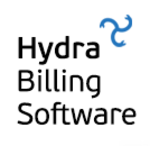Description

Ordway

Recharge
Comprehensive Overview: Ordway vs Recharge
As of my latest update, Ordway and Recharge are two distinct companies that provide specialized solutions within the financial and e-commerce sectors, respectively. Here is an overview of each, focusing on their primary functions, target markets, market share, and key differentiating factors:
a) Primary Functions and Target Markets
Ordway
-
Primary Functions:
- Ordway offers a billing and revenue automation platform that is designed to automate and streamline the entire billing process. It combines billing, revenue recognition, collections, and analytics functionalities into a single platform.
- Key functionalities include invoice generation, subscription billing, revenue recognition compliance (especially ASC 606), account receivables management, and financial reporting.
-
Target Markets:
- Ordway primarily targets B2B enterprises, especially those with complex billing requirements. This includes SaaS companies, professional services, telecommunications, and any business model relying on subscription or usage-based pricing structures.
Recharge
-
Primary Functions:
- Recharge specializes in enabling subscription billing for e-commerce stores. Its platform allows businesses to offer subscription services to their customers, including recurring billing, customer management, and seamless integration with e-commerce platforms like Shopify.
- Features include subscriber management, analytics, churn prevention tools, and flexible subscription options (such as skip, pause, or swap products).
-
Target Markets:
- Recharge primarily targets direct-to-consumer (DTC) brands operating online. This includes industries like health and beauty, food and beverage, and fashion, among others, that utilize subscription models in their business strategies.
b) Market Share and User Base
Determining exact market share and user base can be challenging due to varying data sources and definitions of "market." However:
Ordway
-
Market Position: Ordway is considered a strong player in the niche of billing automation for growing and mid-sized B2B enterprises. It is well-recognized for addressing the specific needs of companies with intricate billing and financial reporting requirements.
-
User Base: Ordway's user base mainly consists of B2B companies looking for an extensive billing and revenue automation solution. Their clients are often characterized by complex pricing structures necessitating advanced billing workflows.
Recharge
-
Market Position: Recharge holds a significant position within the subscription e-commerce space, particularly for stores on platforms like Shopify. It’s notably one of the leaders in creating subscription solutions for smaller to mid-sized online retailers.
-
User Base: As of recent reports, Recharge powers thousands of e-commerce stores globally, helping them manage millions of subscribers. It is a popular choice among Shopify merchants opting to implement subscription strategies.
c) Key Differentiating Factors
Ordway
- Customization and Complexity Handling: Ordway's standout feature is its ability to handle complex billing scenarios and integrations with various ERP and CRM systems, tailored to enterprise needs.
- Compliance and Reporting: It provides tools that ensure compliance with regulatory standards for revenue recognition, making it a preferred choice for companies needing detailed financial accuracy and compliance.
Recharge
- Ease of Integration and Use: Recharge's primary advantage lies in its seamless integration with popular e-commerce platforms, particularly Shopify, making it extremely user-friendly for existing merchants.
- Optimized for E-commerce: Its focus is specifically on subscription e-commerce, providing tools designed for growth, retention, and customer engagement, which are invaluable for DTC brands.
In summary, while Ordway focuses on complex B2B billing solutions with a heavy emphasis on compliance and customization, Recharge offers a streamlined subscription management solution for e-commerce businesses, excelling in ease of use and integration with major platforms. Each caters to different segments of the market, capitalizing on their respective strengths.
Contact Info

Year founded :
Not Available
Not Available
Not Available
Morocco
Not Available

Year founded :
2014
Not Available
Not Available
United States
Not Available
Feature Similarity Breakdown: Ordway, Recharge
Ordway and Recharge are both software solutions focused on billing and subscription management, but they cater to slightly different audiences and use cases. Here's a breakdown of their feature similarities and differences:
a) Core Features in Common
Both Ordway and Recharge offer core features that are fundamental to subscription billing platforms:
-
Subscription Management: Both platforms help businesses manage recurring billing cycles, including creation, updating, and cancellation of subscriptions.
-
Payment Processing: They support various payment gateways, allowing businesses to handle transactions seamlessly.
-
Automated Invoicing: Both platforms offer automated invoice generation to streamline billing processes.
-
Customer Management: Enable management of customer data and support features like customer self-service portals.
-
Reporting and Analytics: Provide financial reports and analytics to help businesses understand revenue patterns, subscription metrics, and customer behavior.
-
Integration Capabilities: Both offer integrations with other business tools, such as accounting software (e.g., QuickBooks) and e-commerce platforms.
b) Comparison of User Interfaces
-
Ordway: Ordway's user interface is designed for flexibility and customization, catering particularly to B2B businesses with unique billing workflows. Its dashboard is intuitive, focusing on providing detailed insights and visualizations of financial metrics. The customization options allow users to tailor the UI to specific operational needs, which can be beneficial for complex billing scenarios.
-
Recharge: Recharge has a more streamlined interface aimed primarily at e-commerce businesses, especially those using platforms like Shopify. Its UI is designed for ease of use, with straightforward navigation and a focus on simplifying subscription services for physical goods. It emphasizes quick setup and user-friendly management of subscriptions and customer interactions.
c) Unique Features
-
Ordway:
- Tailored Billing Workflows: Ordway allows for highly customizable billing workflows that can accommodate complex billing rules and structures, making it a strong choice for businesses with unique subscription models.
- B2B-specific Features: It offers features specifically aimed at enterprise clients, including advanced revenue recognition and custom contract management.
-
Recharge:
- E-commerce Integration Strengths: Recharge excels in integrations with e-commerce platforms, particularly Shopify, making it a leading choice for online merchants selling subscription products.
- Customer Experience Tools: It provides tools focused on enhancing the customer experience, such as personalized checkout experiences and tools for customers to manage their subscriptions independently, which are particularly beneficial for DTC (direct-to-consumer) brands.
In summary, while both Ordway and Recharge offer robust billing and subscription management features, they are optimized for different types of businesses. Ordway offers more customization and complexity for B2B environments, while Recharge provides an intuitive and e-commerce-friendly solution.
Features

Revenue Recognition
Subscription Management
Integrations
Reporting and Analytics
Billing and Invoicing

Customer Experience
Integrations
Subscription Management
Analytics and Reporting
Best Fit Use Cases: Ordway, Recharge
Ordway and Recharge are both solutions designed to manage billing and subscription processes, but they serve different types of businesses and use cases. Here's a breakdown of how they fit into different scenarios:
Ordway
a) Best Fit Use Cases for Ordway:
-
Subscription-Based Businesses:
- Ordway is ideal for companies that rely heavily on subscription models, whether they are SaaS (Software as a Service), media, or telecom businesses. It offers robust billing and invoicing capabilities that automate the recurring billing processes.
-
Complex Billing Needs:
- Businesses that have complex billing requirements, such as tiered pricing, usage-based charges, or need to manage large volumes of accounts, will benefit from Ordway's flexible billing system.
-
Mid to Large Enterprises:
- Ordway's comprehensive feature set is particularly useful for mid to large-sized enterprises that require sophisticated financial reporting and analytics, automated workflow processes, and integration with existing financial systems like ERP and CRM tools.
-
International Operations:
- Companies that operate internationally and need to manage multi-currency, tax, and compliance issues across different regions can leverage Ordway's capabilities in handling these complexities.
-
Professional Services:
- Firms that offer professional services might use Ordway to streamline the process of tracking billable hours, project expenses, and generating detailed invoices.
Recharge
b) Preferred Use Cases for Recharge:
-
E-commerce Subscriptions:
- Recharge excels in supporting e-commerce businesses, particularly those operating on platforms like Shopify or WooCommerce, that want to offer subscription products (like subscription boxes, recurring orders, etc.). It is a preferred choice for DTC (Direct-to-Consumer) brands focusing on product subscriptions.
-
Small to Medium-Sized Businesses:
- Given its ease of use and integration with popular e-commerce platforms, Recharge is well-suited for small to medium-sized businesses that want a straightforward, efficient solution for managing subscription services without needing extensive customization.
-
Consumer Goods:
- Businesses in the consumer goods sector that sell recurring physical products such as food delivery, health supplements, and beauty products will find Recharge's capabilities effective for managing recurring shipments and customer engagement.
-
Rapid Deployment:
- Scenarios that require quick implementation and a user-friendly interface are perfect for Recharge, given its plug-and-play nature and intuitive setup process.
d) Catering to Different Industry Verticals or Company Sizes:
-
Ordway caters primarily to verticals that require complex, scalable billing solutions, such as technology (SaaS enterprises), media, telecommunications, and professional services. Its feature-rich platform is adaptable for large enterprises and organizations with intricate billing needs.
-
Recharge, on the other hand, is more focused on the e-commerce and consumer goods sectors. It is ideal for smaller to midsized businesses that are seeking easy integration with e-commerce platforms to offer subscription models. Recharge’s straightforward setup and focus on product-based subscriptions make it an attractive choice for burgeoning DTC brands.
Both solutions fill different niches in the market and provide valuable tools to businesses seeking to optimize and automate their billing processes, but their applicability diverges based on the industry's complexity and company size.
Pricing

Pricing Not Available

Pricing Not Available
Metrics History
Metrics History
Comparing undefined across companies
Conclusion & Final Verdict: Ordway vs Recharge
To provide a tailored conclusion and final verdict for Ordway and Recharge, it's crucial to assess the context in which these products are considered. Let’s break it down based on the criteria provided:
Conclusion and Final Verdict:
a) Considering all factors, which product offers the best overall value?
Ordway:
Ordway excels in offering comprehensive billing and revenue operations automation, which can be invaluable for businesses needing detailed financial insights and robust contract management. Its value is most pronounced for companies seeking to streamline billing processes and get deeper analytics on revenue.
Recharge:
Recharge is highly specialized for subscription management, particularly effective for businesses in e-commerce and subscription services. It’s especially valuable for companies looking to seamlessly integrate with e-commerce platforms and provide a smooth flow of transactions and customer experience.
Overall Value Decision:
The best value depends significantly on the business needs. For companies heavily reliant on subscription models and integrations with existing e-commerce platforms, Recharge might offer superior value. Conversely, for businesses needing a wider scope of revenue management beyond subscriptions, Ordway can provide more comprehensive value.
b) Pros and Cons of Choosing Each Product:
Ordway:
-
Pros:
- Comprehensive billing automation and revenue management.
- Detailed reporting and analytics.
- Suitable for complex billing needs across diverse revenue streams.
-
Cons:
- Might be overly complex for businesses with straightforward subscription needs.
- Potentially higher learning curve for users unfamiliar with extensive financial systems.
Recharge:
-
Pros:
- Optimized for subscription and recurring payments.
- Excellent integrations with e-commerce platforms like Shopify.
- User-friendly interface tailored for subscription management.
-
Cons:
- Limited in scope outside of subscription management.
- May require additional tools for full financial and operational reporting.
c) Specific Recommendations for Users Trying to Decide Between Ordway vs Recharge:
-
Assess Business Model Needs:
- If your business is primarily centered on subscriptions, with significant e-commerce operations, Recharge could be more beneficial due to its seamless integration with platforms specific to this model.
- If your business requires complex billing scenarios, has multi-faceted revenue streams, or needs detailed financial analytics, Ordway may suit your needs better.
-
Evaluate Integration Requirements:
- Consider your existing tech stack. If your business relies on specific platforms for e-commerce, ensure that the product you choose integrates well to avoid disruptions.
-
Prioritize Usability vs. Functionality:
- For businesses needing a straightforward, easy-to-manage system, especially startups or small businesses focusing only on subscriptions, Recharge might be simpler to manage.
- Larger enterprises with complex financial needs may benefit more from the deeper functionalities of Ordway.
-
Trial and Demos:
- Utilize free trials or request demos. Seeing both systems in action can help in understanding which aligns better with your operational workflows.
In summary, both platforms serve different niches best, with some overlaps. Ordway provides broader financial management capabilities, while Recharge excels in specialized subscription services. Consider your specific business needs, integration capabilities, and long-term operational goals when deciding.
Add to compare
Add similar companies




